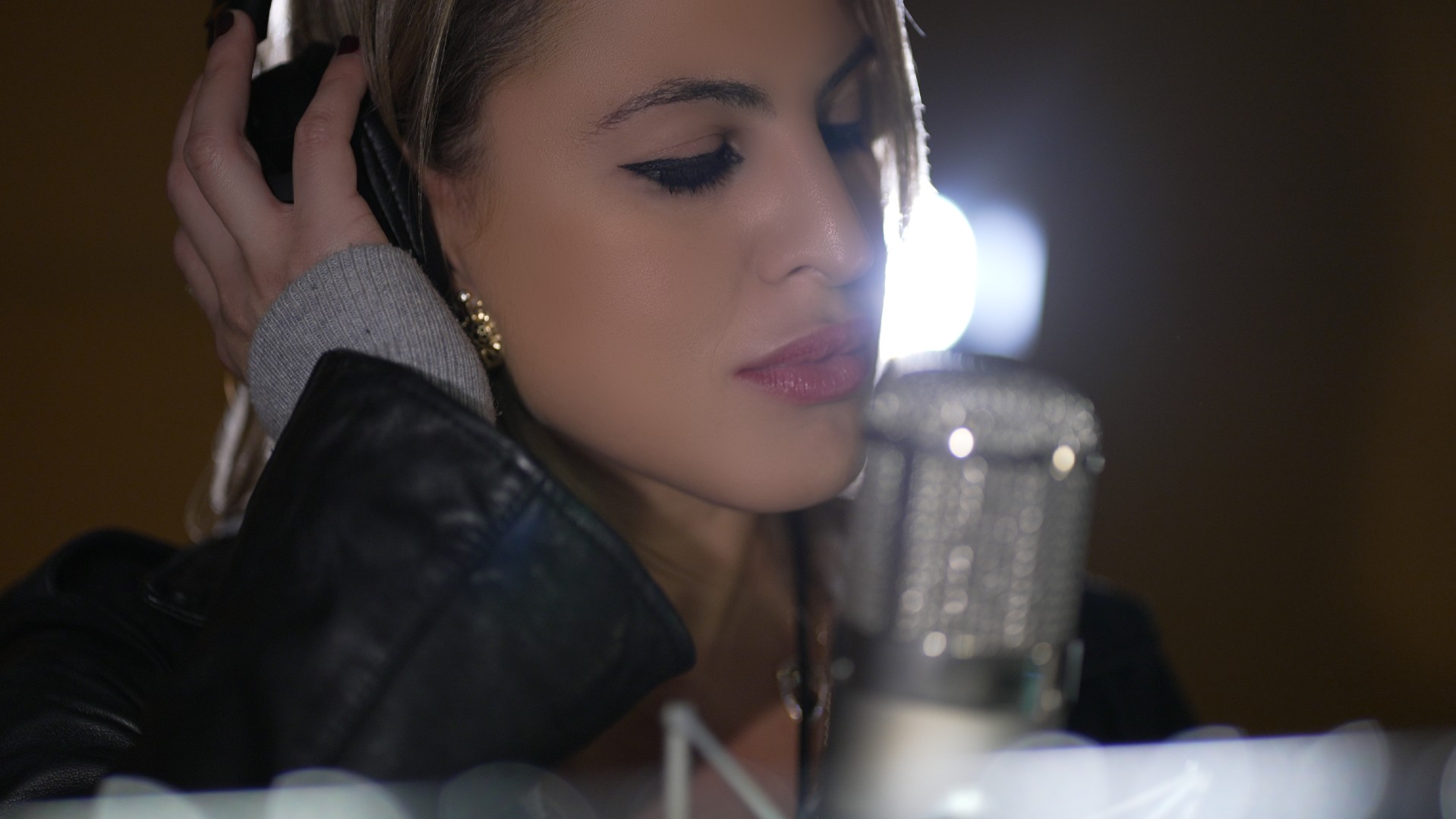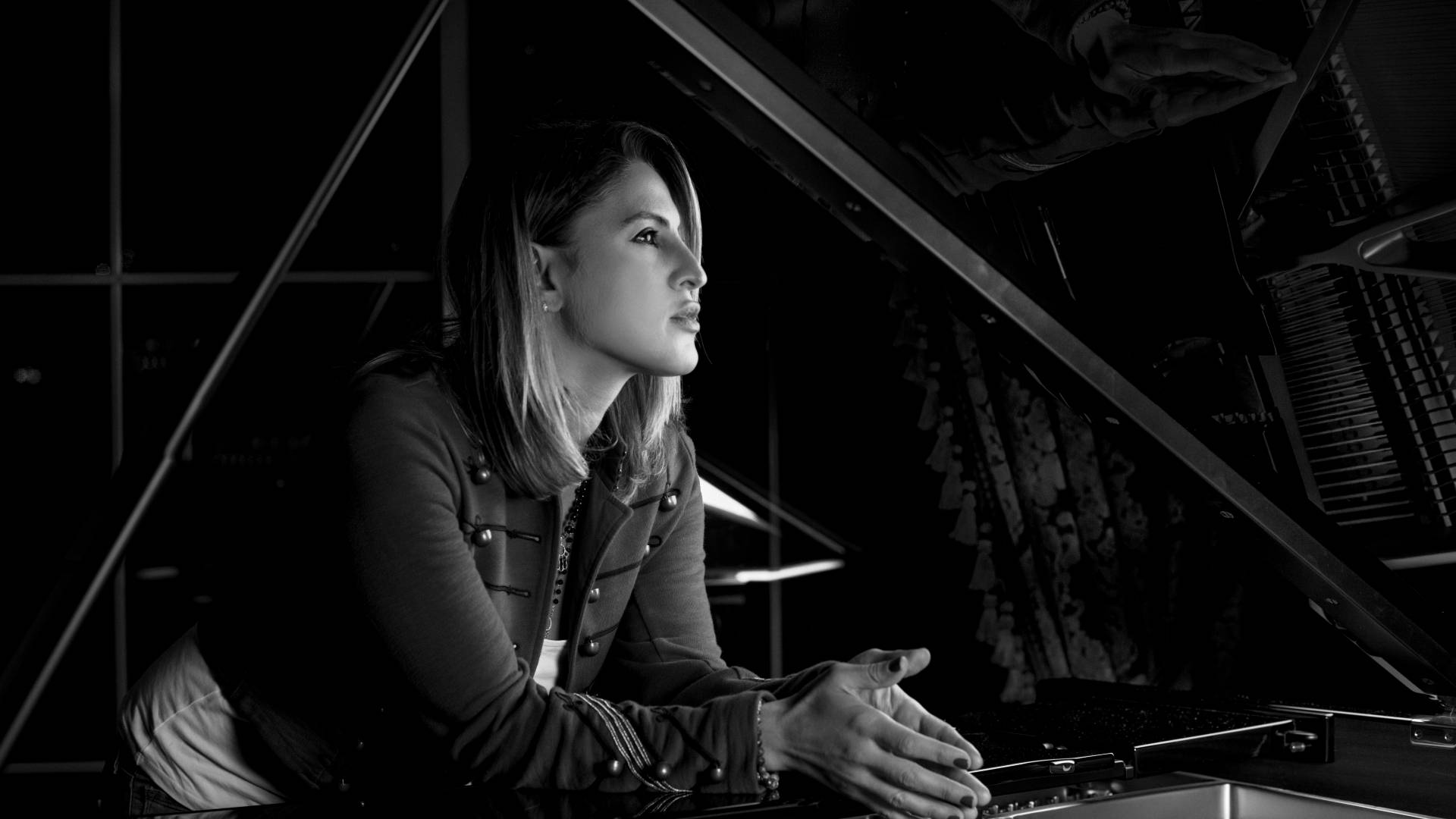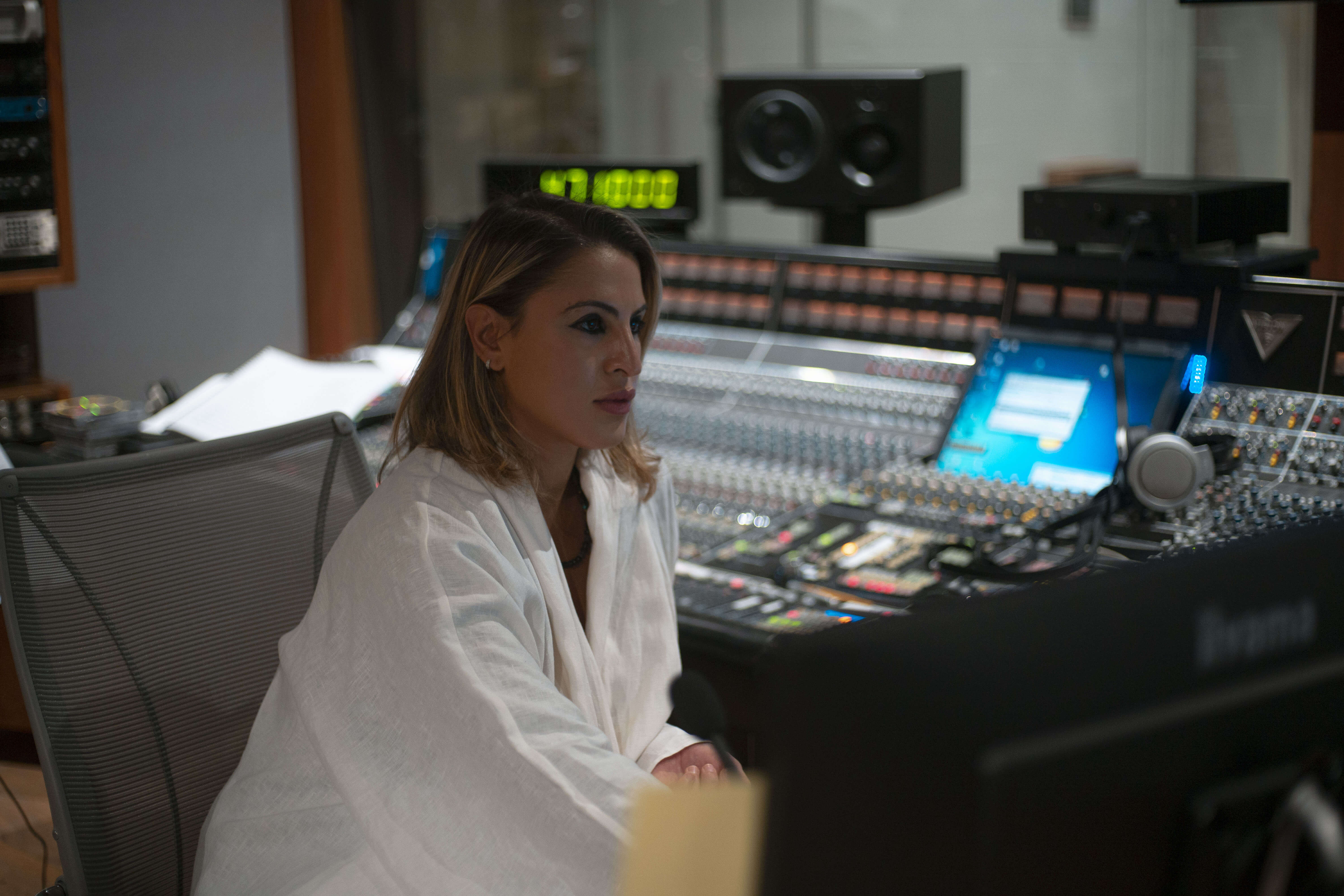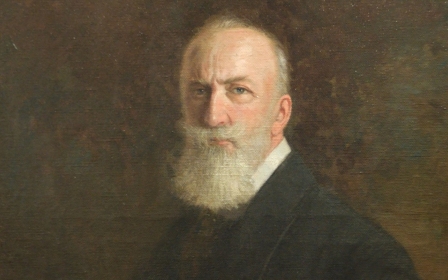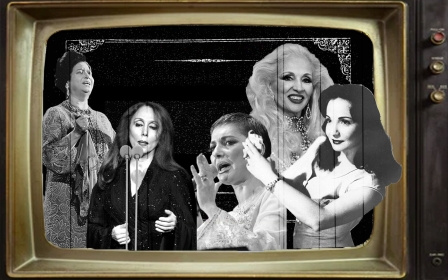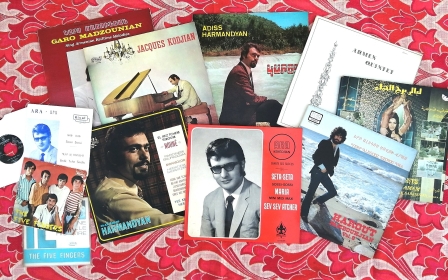Musician Dana al-Fardan on influences, activism and being the sound of Qatar Airways
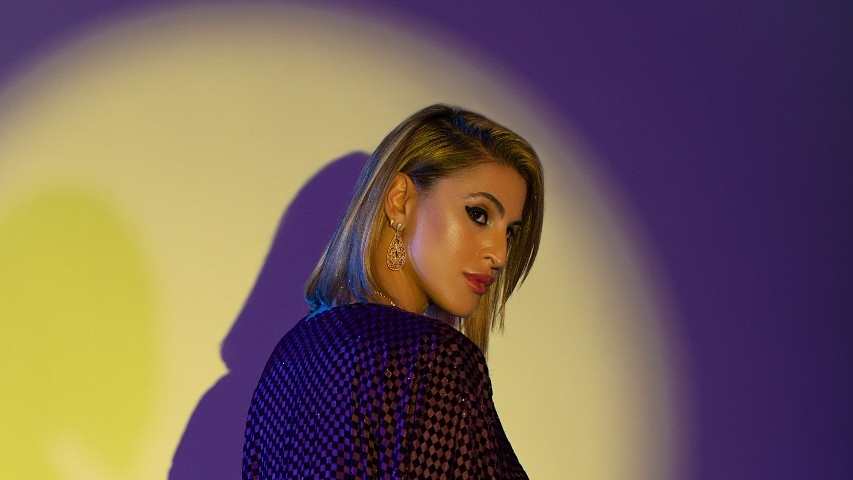
If you’ve ever boarded a flight departing for or connecting at the Qatari capital of Doha, the chances are you have heard music composed by Dana al-Fardan.
In 2017, Fardan became the soundtrack for Qatar Airways with her calming melody Sky setting the mood for jet-setting passengers around the world.
New MEE newsletter: Jerusalem Dispatch
Sign up to get the latest insights and analysis on Israel-Palestine, alongside Turkey Unpacked and other MEE newsletters
The 36-year-old Qatari composer, singer and songwriter's music is a product of her heritage, combining her love of Arabic instruments and her tendency to incorporate experimental melodies and forms.
Her work blends rich strings and choral vocals with more traditional Arab styles.
Fardan's work is being recognised internationally and her other career highlights include: scoring the award-winning film Orca; composing music for a UN Day concert; working on the "Bring Hope for Gaza" campaign and composing soundtracks for musicals.
In addition to her music, the Qatari artist has used her platform to raise awareness about social causes, expressing support for refugees and shedding light on the plight of Palestinians, something she says is important to her.
With the release of her single Solstice in March, Middle East Eye spoke to Dana al-Fardan about her music, goals and philanthropy.
Middle East Eye (MEE): How did you get into music and what was your inspiration?
Dana al-Fardan (DA): As a child, I tinkered on the piano constantly and randomly came up with melodies. I watched a performance of a symphony orchestra on TV when I was around 10, and it was pure and utter magic for me.
I was obsessed with it. I couldn’t believe the breadth and depth of sound that came from the musicians.
I used to love breaking down the instrumentation, memorising and (anticipating) what was going to happen.
Then a bit later, my mother took me to see a musical in the West End that had a profound effect on me. This method of storytelling, it’s so transcendental, it incorporates everything.
MEE: You mention that your daughter has been one of the biggest reasons for you pursuing music. Can you tell us more about this?
DA: My entire life had been geared towards the family business [al-Fardan Group]. Then, fast forward several years, I found out I was expecting a child while still working for the family.
I felt like something was missing in my life, like I was not shifting perspectives or making an impact. Then one day I got pregnant, and I found out that it was a girl.
I understood that I had to lead by example, I had to live my most authentic life, I had to be true to myself.
I couldn’t imagine cultivating an honest relationship with my daughter if I was denying this huge part of who I was - a musician.
MEE: Can you tell us about your experience as a composer for Qatar Airways and how that came about?
DA: It was all organic. The marketing director approached me about creating bespoke content for Qatar Airways based on a few of my symphonic shows that she had attended.
She was looking for an epic sound that was universally emotive and accessible, but with a distinct Arabian flavour.
The idea was to bring the majesty and spirit of the Opera House to Qatar Airways, with original content.
Something that is human rather than corporate, a spirit that invokes progress and growth.
It has been a lot of fun and an honour to partner with Qatar Airways and represent their brand musically.
MEE: Your music also featured at the Sounds of Qatar concert, hosted by the Qatar National Library. What was that experience like?
DA: I was thrilled to host a concert at this iconic venue. The show marked the Qatar National Library’s one-year anniversary and was held during International Women’s Day.
We have made massive strides as women, and we grow the more we express ourselves.
We all have different avenues and for me art is that space.
My music is what helps me transcend every barrier, whether it is internal or external, so it was a great opportunity to perform a repertoire that reflects progress across the board.
MEE: One of your major projects was working on the West End musical Broken Wings, which is an autobiographical account of the renowned poet Khalil Gibran’s first love. Can you tell us about that?
DA: It was written in collaboration with West End actor Nadim Naaman, and will always hold a special significance for me, not only because it was my first musical, but because it was my first exercise in introducing this prolific figure of Arab origin to a West End audience.
It was extremely well received and set the foundations for a greater appetite for content of Arab origin.
This has become my general mandate in my music career: to promote our vast, rich art forms, particularly figures of exceptional universal appeal, such as Gibran and Rumi.
Although Gibran Khalil Gibran is widely known for his book The Prophet, little is known about the man himself.
Broken Wings is a musical about his life, which provides an origin story for The Prophet.
Through Broken Wings, we understand all the components that shaped his thoughts and views in The Prophet. We understand the context for his liberal thoughts and perspectives.
The musical has already been performed to sold-out audiences at The Haymarket Theatre London, at the Beitiddeine Festival in Beirut, the Katara Opera House in Qatar and The Dubai Opera.
I’m looking forward to announcing the upcoming tours as Covid restrictions relax globally.
MEE: Your new single, Solstice, came out in March and your solo album, Indigo, is set to be released in May. What are some of the meanings you wanted to convey in the song?
D.A: Solstice represents the space we find within that allows our light to shine through, and my album is a multisensory experience attaching light and colour to music.
I chose Indigo [for the album name] because of the colour and what the term represents.
Indigo is widely believed to be the colour of the third eye "chakra" and is also the colour of wisdom.
To me, it represents a comprehension of your higher self. That understanding of a greater force inside of you that paves the direction towards your true being.
It is the pursuit of building and converging beautiful souls. This is sincerity at its deepest and most active level, and that is what I wanted to convey throughout the album.
Each of the 11 tracks has its own colour scheme and mood, and the live show will be a multi-sensory experience with a light show, performed by six musicians.
All the songs, including Indigo and Solstice, will have corresponding videos, and are very conceptual and abstract, in order to allow the listener the space to interpret them.
MEE: Your heritage has had a significant impact on your music. Can you tell us more about that?
DA: I explore the nuances of different Arabic instruments, sounds, rhythmic patterns and flourishes after I write my initial compositions.
I start to experiment with certain instruments and blend them, and often find the result to be quite harmonious.
I tend to stay away from the word “fusion” as it sometimes implies a "watering down” of one style or another.
So the idea here is to preserve the authenticity of one type of sound and build it into another in a way that fits.
Sometimes it's as simple as adding an instrument - my favourite is the rababa and that brings out such a distinctive colour in the music.
This unique component to my sound is what has captured an international audience and I have found there to be a great taste for that globally.
MEE: Alongside your music, one of the things you have prioritised is your humanitarian and philanthropic efforts. Can you tell us about the different forms of activism you’ve been involved in?
DA: I used my experience in music to compose a song for the Hope for Gaza campaign during the holy month of Ramadan. The idea behind the campaign was to boost the services provided by UNRWA, for Palestinian refugees in Gaza.
I previously had refugee areas and schools in Jordan, which showed me the difficulties that Palestinians face on a daily basis.
I think it’s the duty of every Arab and every Qatari to stand by these people and support them through this time of critical need. I made a conscious choice to support the right cause.
The purpose of the campaign was to create awareness around the plight of Palestinians, let their voices be heard and urge the international community to help those restricted in Gaza.
Editor's note: Questions and answers have been edited for brevity and clarity.
Middle East Eye delivers independent and unrivalled coverage and analysis of the Middle East, North Africa and beyond. To learn more about republishing this content and the associated fees, please fill out this form. More about MEE can be found here.


